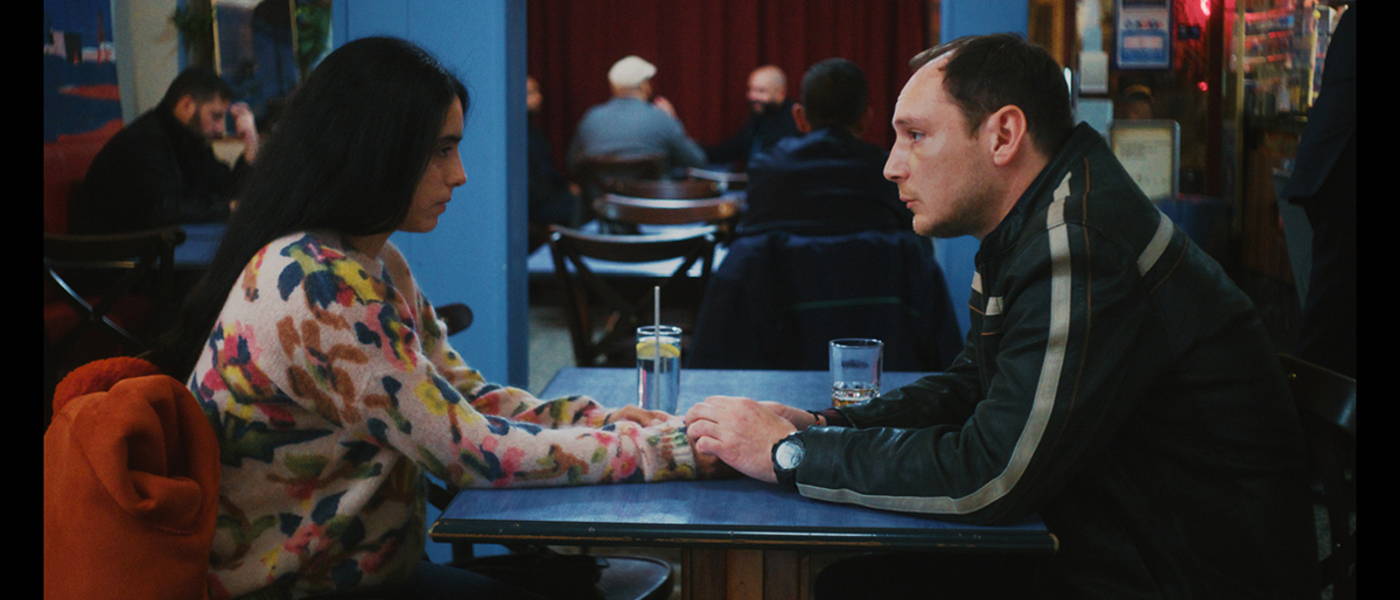About The Rapture
by Marilou Duponchel

by Marilou Duponchel
Interview with Iris Kaltenbäck
"When my best friend became a mother, it turned my life upside down. I feel we speak a lot about how a baby affects a romantic relationship, by how it affects friendship not as much. One friend is shaken to her core and the other one must deal with it. In very close relationships, you go through several steps in life together and, all of a sudden, you don’t know how to be part of this friendship anymore. A news story really caught my attention; a young woman borrowed her best friend’s child and made a man believe the child was hers. I was always very moved by skewed or troubled stories about motherhood, whether it be a story of a woman who becomes a mother, one who bears a child, or one who is not. You can very well be a mother and feel none of the expected emotions, and conversely, a woman who doesn’t have a child can fall for the myth of motherhood and become a mother without ever really wanting to be one. The core of that matter raised interesting issues about womanhood. Whether you are a mother or not, whether you want to be one or not, I feel there’s always a moment in life when you have to deal with the myth. And that story resonates with all of these issues.
The Ravishing of Lol Stein, written by Marguerite Duras, was an inspiration for the film. As a teenager, this book moved me very deeply; it is the story of a woman who sees her fiancé fall madly in love with another woman right in front of her. I loved her muted account of trauma, and the protagonist's denial that will hound her throughout the book and that she needs to revisit. It struck a very intimate chord with me, and gave me some insight about how we relate to difficult events in our lives; it rang very true to me. How traumatic events can slowly dawn on you, completely out of the blue.
I love Kelly Reichardt’s, Lucrecia Martel’s and Ryusuke Hamaguchi’s intimate take on women’s experience; I believe it is novel and very nuanced. As for the relation between reality and fiction, I drew a lot of inspiration from American dramas from the 70s - such as Taxi Driver and The Panic in Needle Park - and Taiwanese films from the 2000s. Films like Edward Yang’s Yi Yi or Hou Hsiao Hsien’s Millenium Mambo, which deal with loneliness, how we relate to the city, and their way of telling a contemporary story that takes place in a city.
I wanted to distance myself from the news story and invent characters; I wanted to indulge in the tale and the script, while at the same time infusing as much reality in the narrative as possible. One of the first challenging concerns we faced with my cinematographer, Marine Atlan, is how to address motherhood on film in our day and age: how did we want to film it? If we’ve often seen the issue in films, it hasn’t really been addressed; it can indeed scare people because it is rife with pitfalls. I quickly came to the conclusion that I wanted to film actual births, I wanted to film this physical feat, and to question that rapture, that first glance, to record it. I wanted it right there, with the accuracy of a documentary, without need for any dialogue. I spent time with midwives, especially when we were shooting this documentary part of the film, and we stayed with them all through their shifts, not knowing what we would see. And later came the issue of consent, that of the mothers and of the midwives. It was a long, trying process, we realised their gruelling working conditions and the insane hours they were piling on. I felt that the most cinematic way of conveying what that profession is like, was through their movements."